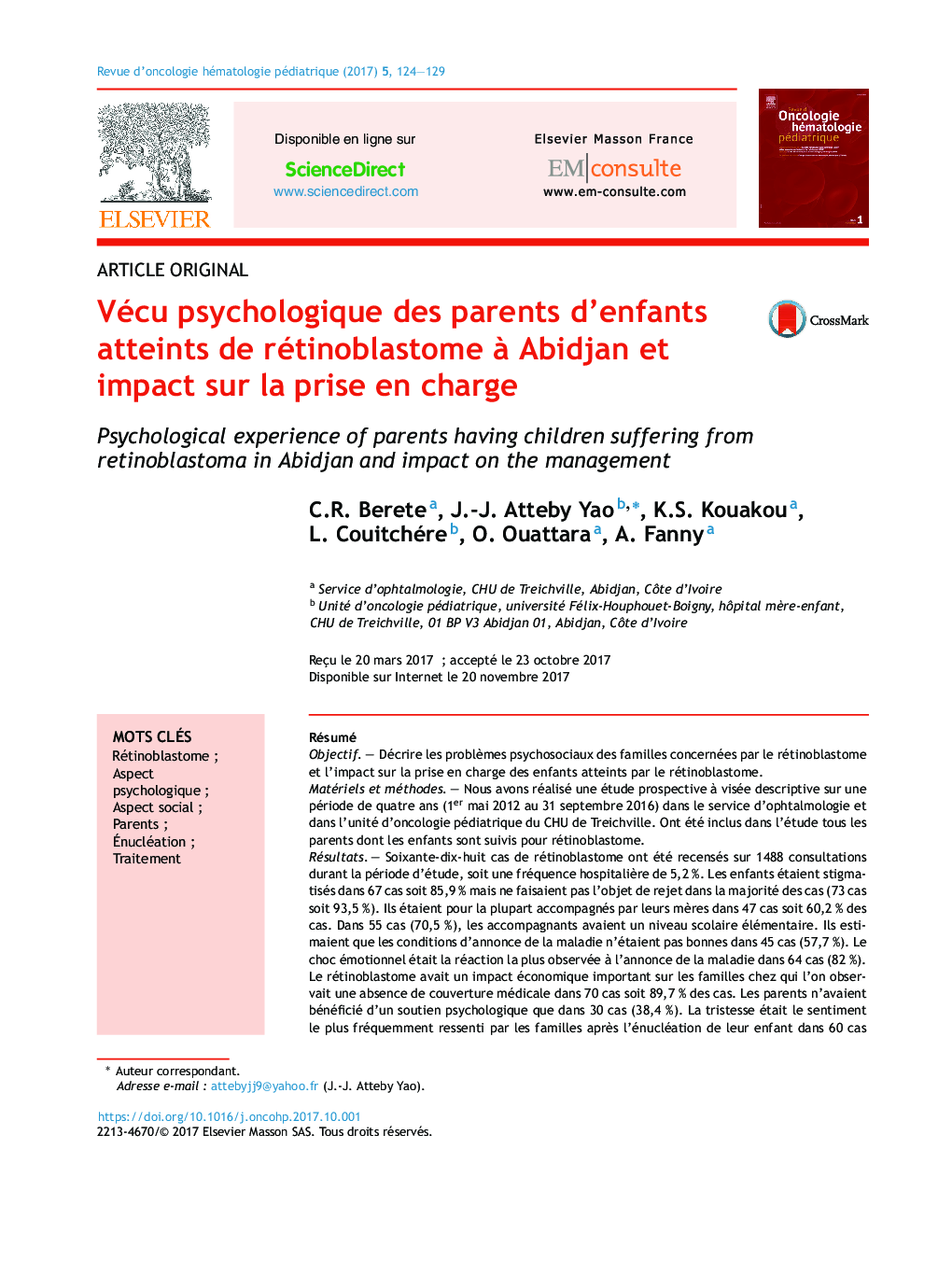| Article ID | Journal | Published Year | Pages | File Type |
|---|---|---|---|---|
| 8734730 | Revue d'Oncologie Hématologie Pédiatrique | 2017 | 6 Pages |
Abstract
Seventy-eight cases of retinoblastoma were enrolled out of 1488 consultations during the study period hence a hospital frequency of 5.2%. The children were stigmatized in 67 cases, hence 85.9% but they were not rejected in the majority of cases (73 cases or 93.5%). Most of them were accompanied by their mothers in 47 cases (60.2%). In 55 cases (70.5%), the accompanying people stopped school at the primary grade. They believed that the way the disease was announced was not good in 45 cases (57.7%) and the emotional shock was the most observed reaction when the disease was diagnosed (64 cases hence 82%). Retinoblastoma had an important economic impact on the families who did not have medical security cover in 70 cases (89.7%). Parents had received a psychological support in 30 cases (38.4%). Sadness was the most frequent feeling in families after their children's enucleation in 60 cases (76.9%). The neighboring was indifferent in 60 cases (76.9%) followed by 10 cases (12.8%) of rejections. Accompanying people thought having an acceptable relationship with the medical staff in 47 cases (60.2%) but this relationship was difficult in 19 cases (24.3%). The majority of parents (70 cases hence 89.7%) thought that the delay of the treatment was long. Concerning care improvement for children, accompanying people have proposed a material and financial support in 75 cases (96.1%) and a service to announce the diagnosis of the disease in 3 cases (3.8%). Compassion was the most psychological state manifested by doctors in 6 out of 10 cases.
Related Topics
Life Sciences
Immunology and Microbiology
Immunology
Authors
C.R. Berete, J.-J. Atteby Yao, K.S. Kouakou, L. Couitchére, O. Ouattara, A. Fanny,
